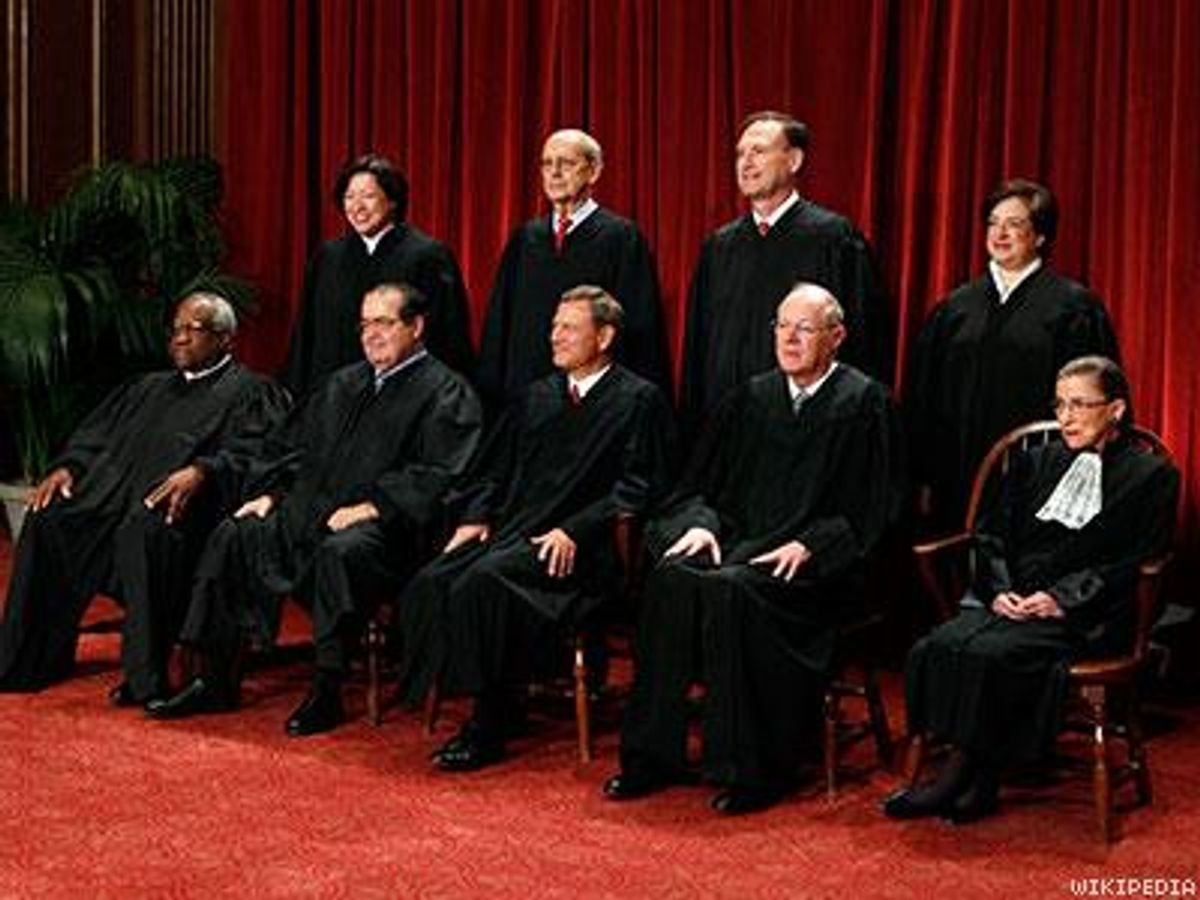When it comes to forecasting what the justices of the U.S. Supreme Court are going to do, there are only two kinds of prediction: vague ones and wrong ones.
That's because it's simply impossible to guess how the highest court in the land will rule -- no matter how clear the tea leaves seem, there will always be a surprise or two tucked in to any decision.
Nevertheless, there is still meaning and import to be found in the court's recent decisions around the freedom to marry.
It was in June of 2013 that the court ruled in the Proposition 8 and Defense of Marriage Act cases, effectively relegalizing marriage in California and gutting the federal marriage ban. Since then, the court has issued five very sparse rulings. None of those rulings has explicitly addressed the constitutionality of marriage, but each one contains a hint of the court's attitude on the issue.
Essentially, that attitude can be boiled down to "let's not be too hasty." Although the rulings have been brief, the majority of them have had the effect of delaying the start of marriage until the Supreme Court can rule.
Their caution is understandable, since it's unclear exactly which states will have cases ready for Supreme Court review in this term.
Utah filed a petition to the Supreme Court in early August. Attorneys for a gay and lesbian couple are working on a brief for the Supreme Court due September 5. Multiple parties in Virginia have petitioned the court, which means that the Virginia case faces a murky timeline.
Those three states are likely to be jostling for the court's attention when the justices return from vacation September 29.
But then there are the additional states racing to catch up: Nevada, Wisconsin, Indiana, Kentucky, Tennessee, Michigan, Ohio, Idaho, and even Hawaii (where marriage is already legal) have cases awaiting decisions from circuit courts. Texas has a case awaiting oral argument. Once those rulings arrive, parties will likely petition the Supreme Court, making for a potentially crowded docket.
The due date for petitions to be considered at the Supreme Court's first conference is September 10. But if a petition arrives any time before the end of the year, it stands a good chance of being considered for the current term.
In the mean time, it's anyone's guess whether marriage could begin in additional states.
In three states, the Supreme Court put marriage on hold, but in two others, the court's decisions allowed marriage to begin.
Those outcomes are not due to the court's attitude on marriage but on the far more technical issues of judicial process. In Utah, Oklahoma, and Virginia, the court paused marriage because it anticipated petitions for review from legitimate parties.
Allowing marriage to begin (or continue) in those states would not have resulted in complete chaos, but it would have complicated the litigation. In Utah, where marriage was briefly allowed, an additional lawsuit has sprung up to determine the validity of the licenses. The court may have applied the brakes on further marriages in order to keep the litigation as simple as possible.
In Oregon and Pennsylvania, on the other hand, the only parties attempting to halt marriage were unqualified to intervene. Those parties were the National Organization for Marriage, once a formidable foe but now just barely clinging to life, and a county clerk with no professional stake in the issue.
The message from the court, so much as one can be discerned, seems to be that it wants cases to remain as clean and orderly as possible and to be brought by appropriate parties.
It's not an unreasonable expectation, but it requires a level of patience that many couples, having waited decades to marry, may find difficult to endure.













































































